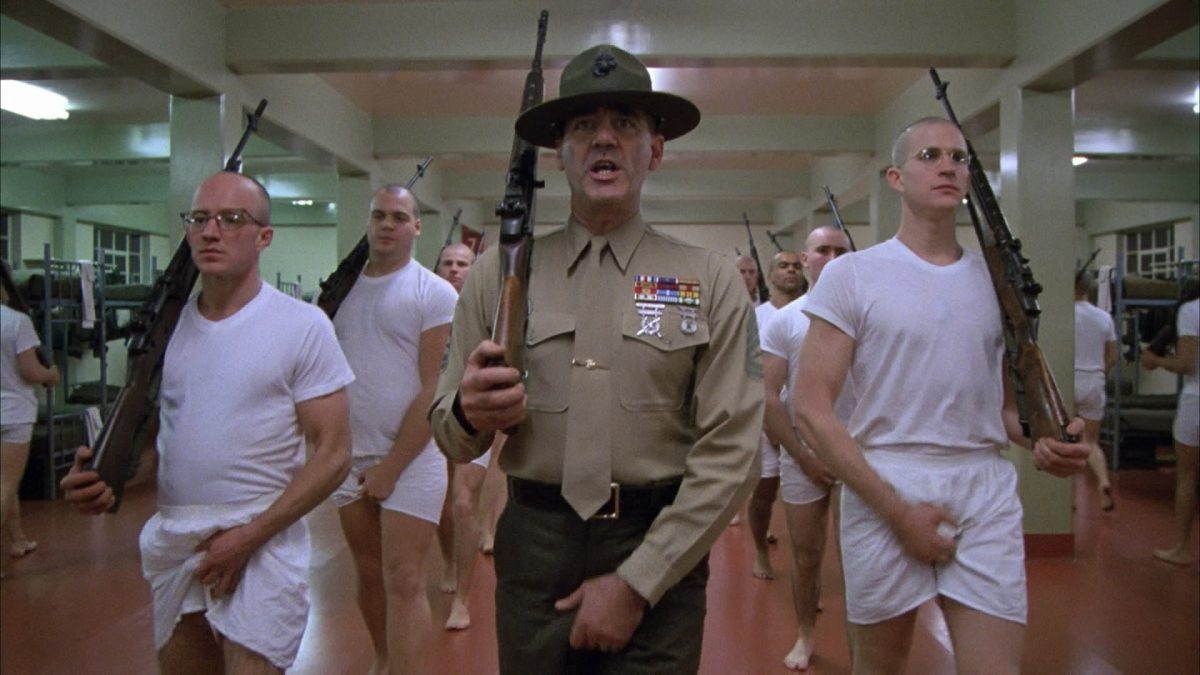
Full Metal Jacket – Review by David Denby
Can the sentiment of Stanley Kubrick’s Full Metal Jacket be anything but mere attitude—death-enthralled chic?

Can the sentiment of Stanley Kubrick’s Full Metal Jacket be anything but mere attitude—death-enthralled chic?
Stanley Kubrick, it appears, has raised many of the same questions through his films as Nathaniel Hawthorne did with his writing. In fact, they seem to share similar psychologically based images despite being separated by 100 years and Kubrick’s use of a medium that Hawthorne never experienced.
Da Nang è lontana da Montelepre. La storia di Salvatore Giuliano e la guerra del Vietnam non si consumano sotto lo stesso cielo. Ma, forse, le traiettorie della “blindatissima” Full Metal Jacket e la parabola fatale del Siciliano attraversano lo “stesso” cinema.
Full Metal Jacket betrays Kubrick’s avant-garde admirers.
La Storia, diceva ancora Baudrillard, è uno scenario rétro, è un “cadavere” che si può mettere in scena, un “fossile” che può essere rappresentato e “simulato”. «La Storia fa così il suo ingresso trionfale nel cinema a titolo postumo». Baudrillard notava come questa riapparizione della Storia non avesse un valore di presa di coscienza, ma di nostalgia di un referente perduto.
Full Metal Jacket is not cold. It is not bitter. It is not distanced from its subject. It does not suffer from too many retakes, nor from an excess of directorial control. It is moving. It is angry and fast. It is, at times, hilarious.
The last formal interview Stanley Kubrick gave was in London in 1987 as part of the publicity campaign for “Full Metal Jacket”. By Tim Cahill of Rolling Stone magazine
by Lloyd Rose PINEWOOD GREEN, ENGLAND – The board room at Pinewood Studios is disturbingly baroque. The ceiling sags with chandeliers. Gilt-edged paneling dresses every

Stanley Kubrick’s Full Metal Jacket establishes its grip on the viewer’s attention instantaneously, with an opening scene in which young recruits are shorn by an off-screen Marine Corps barber, while a corny, lulling song is heard in the background (“Kiss me goodbye and write me when I’m gone/Goodbye sweetheart, hello Vietnam”).
Saggio critico di Fernaldo Di Giammatteo su “Full Metal Jacket”, pubblicato nel numero monografico su Stanley Kubrick della collana Il Castoro Cinema
Full Metal Jacket (1987) di Stanley Kubrick. Recensione di Paolo Cherchi Usai, in “Segnocinema”, n. 31, 1988
Stanley Kubrick’s “Full Metal Jacket” review published in Film Comment, September/October 1998. By Robert Castle and Stephen Donatelli
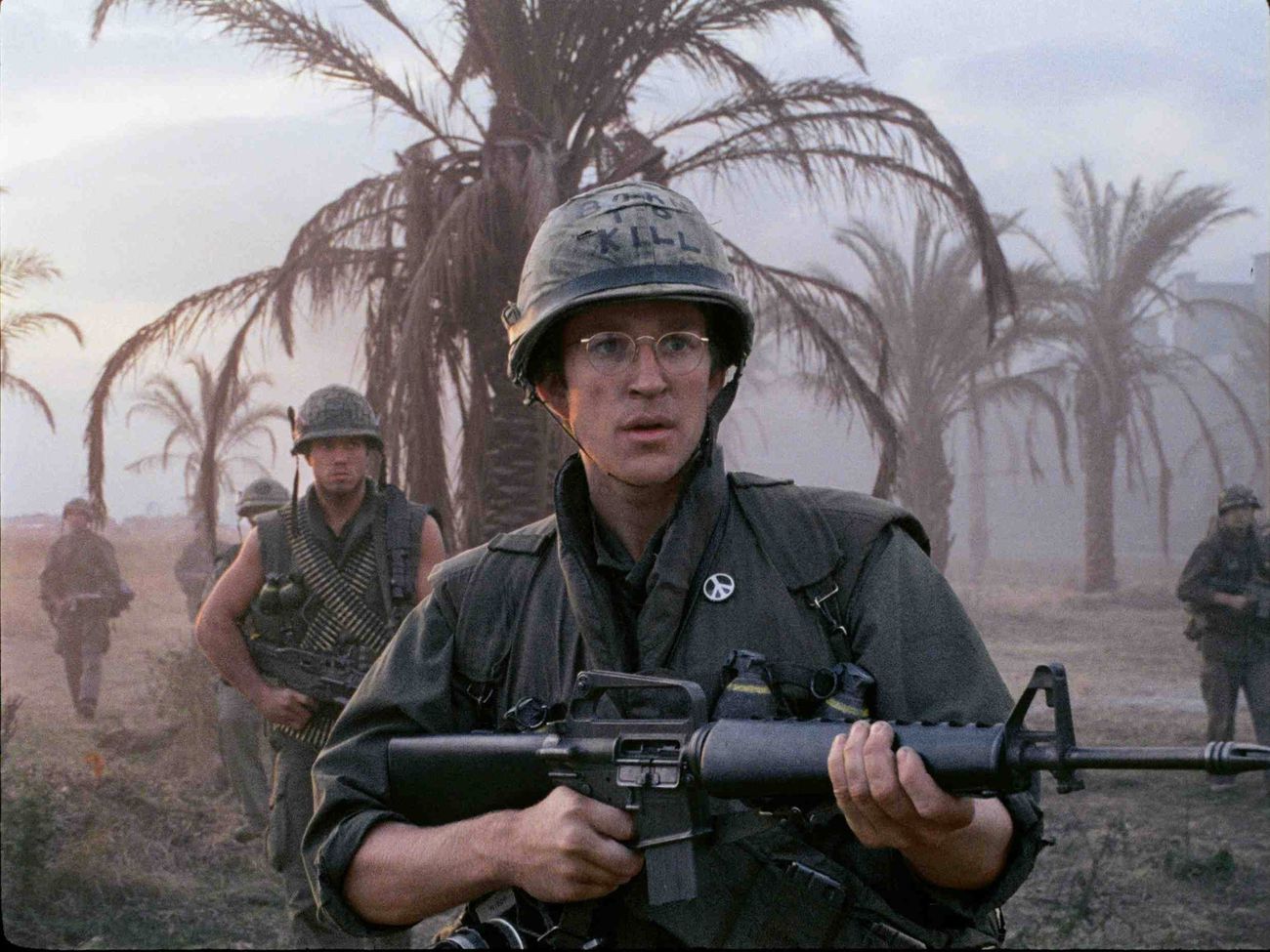
Chances are that when Stanley Kubrick’s Vietnam film Full Metal Jacket is at midpoint a lot of moviegoers will be asking themselves what it’s going to be about, and when it’s over they still won’t know.
Stanley Kubrick’s Full Metal Jacket (1987) presents a very different vision of the Vietnam War, one with enhanced perspective.
Full Metal Jacket certainly isn’t what we expect a Vietnam movie to be. Then again, it’s only secondarily a movie about the war. First and foremost, this is a Kubrick movie
Forse l’America ha trovato il sistema per esorcizzare una guerra dolorosamente perduta: basta continuare a combatterla al cinema, all’infinito.
Tullio Kezich recensisce il nuovo film di Stanley Kubrick “Full Metal Jacket”. Pubblicato in La Repubblica, 10 ottobre 1987

September 1987 issue of American Cinematographer, detailing the making of Stanley Kubrick’s film ‘Full Metal Jacket’.
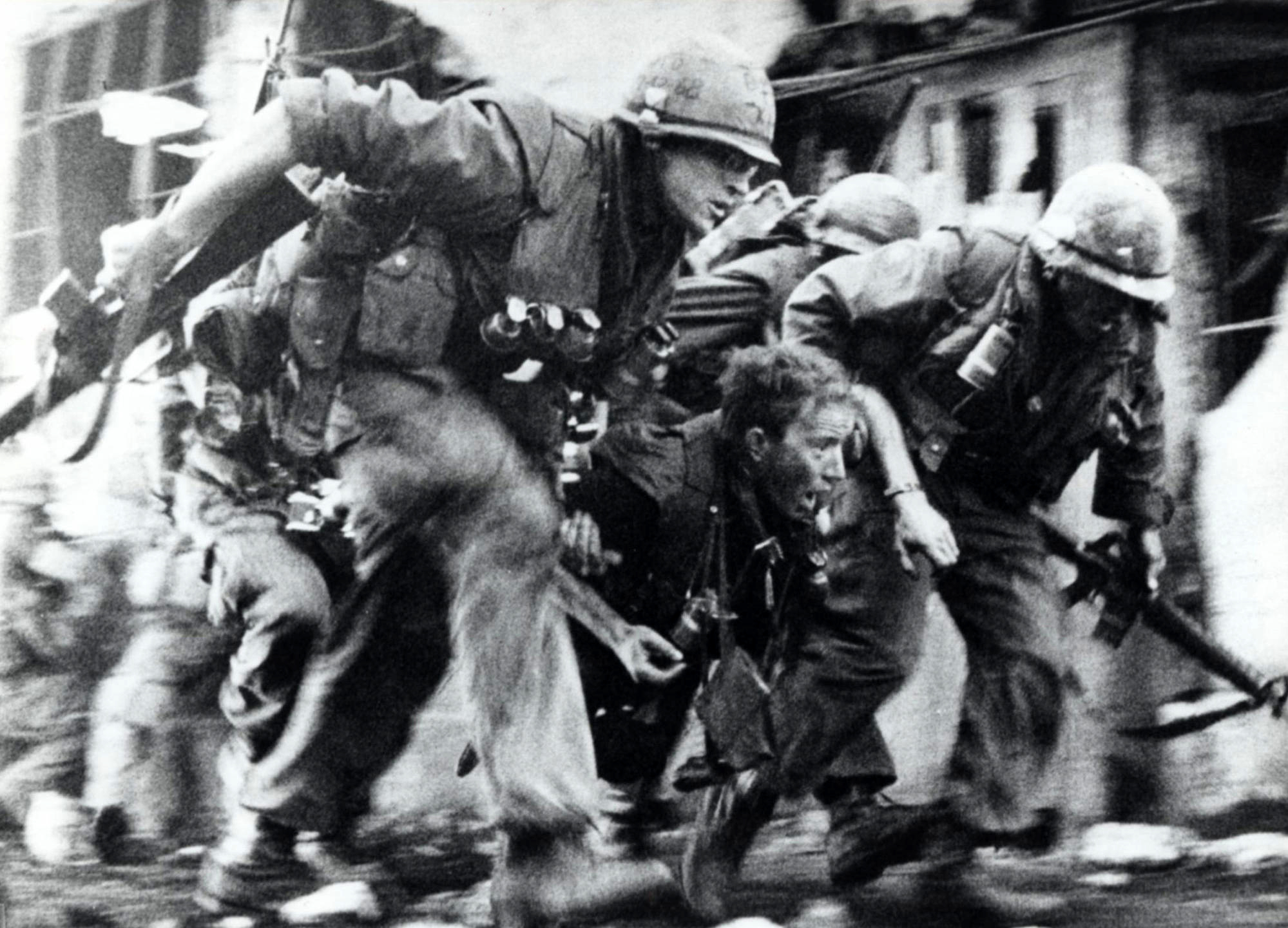
Review of Stanley Kubrick’s “Full Metal Jacket”, by Terrence Rafferty, in Sight and Sound, Autumn 1987
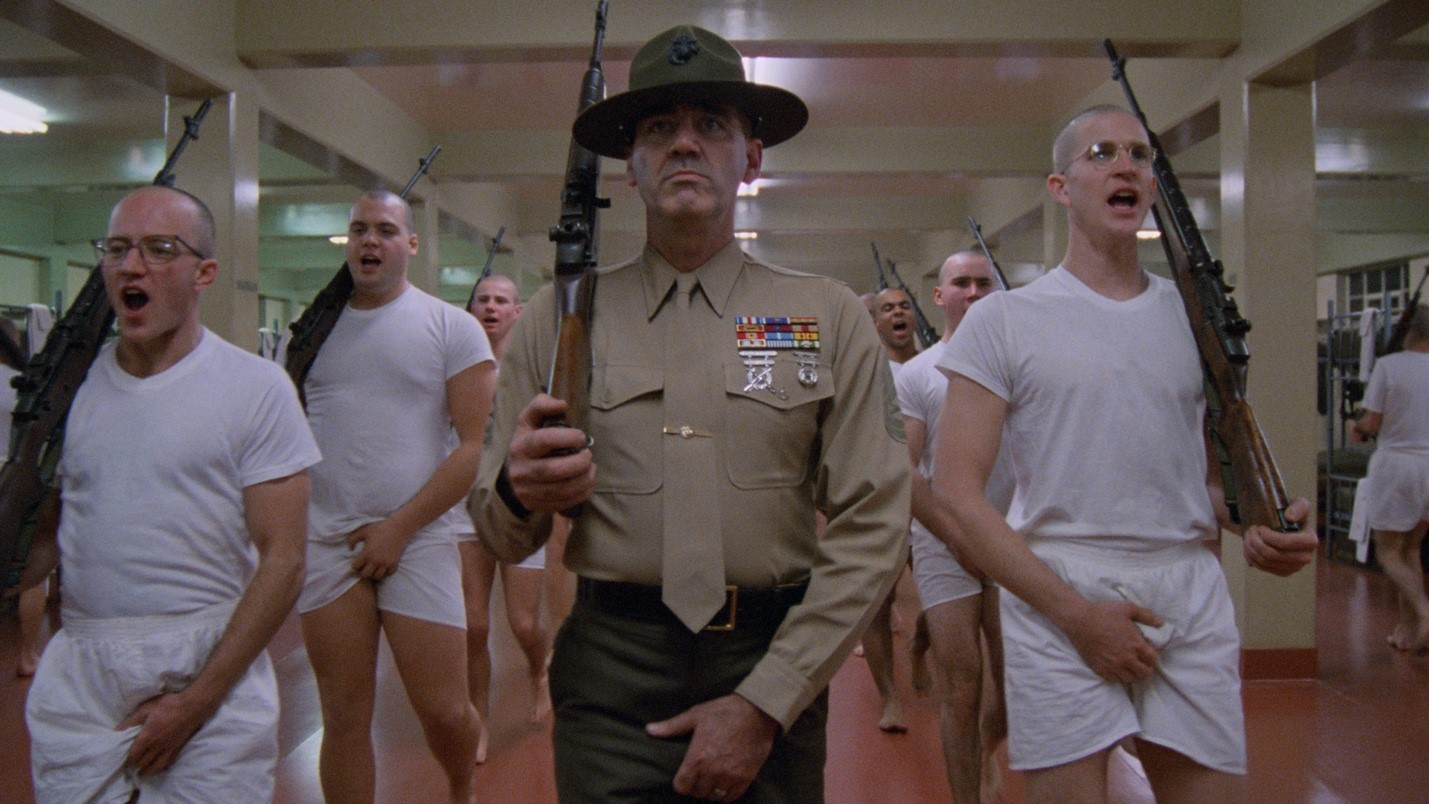
A trent’anni dal suo Orizzonti di gloria, che resta un pilastro del cinema antimilitarista, e a una ventina da Stranamore, ecco Kubrick ancora sparare a zero contro chi scatena l’istinto omicida dell’uomo
Susan White investigates the problem of gender in Kubrick’s “Full Metal Jacket”
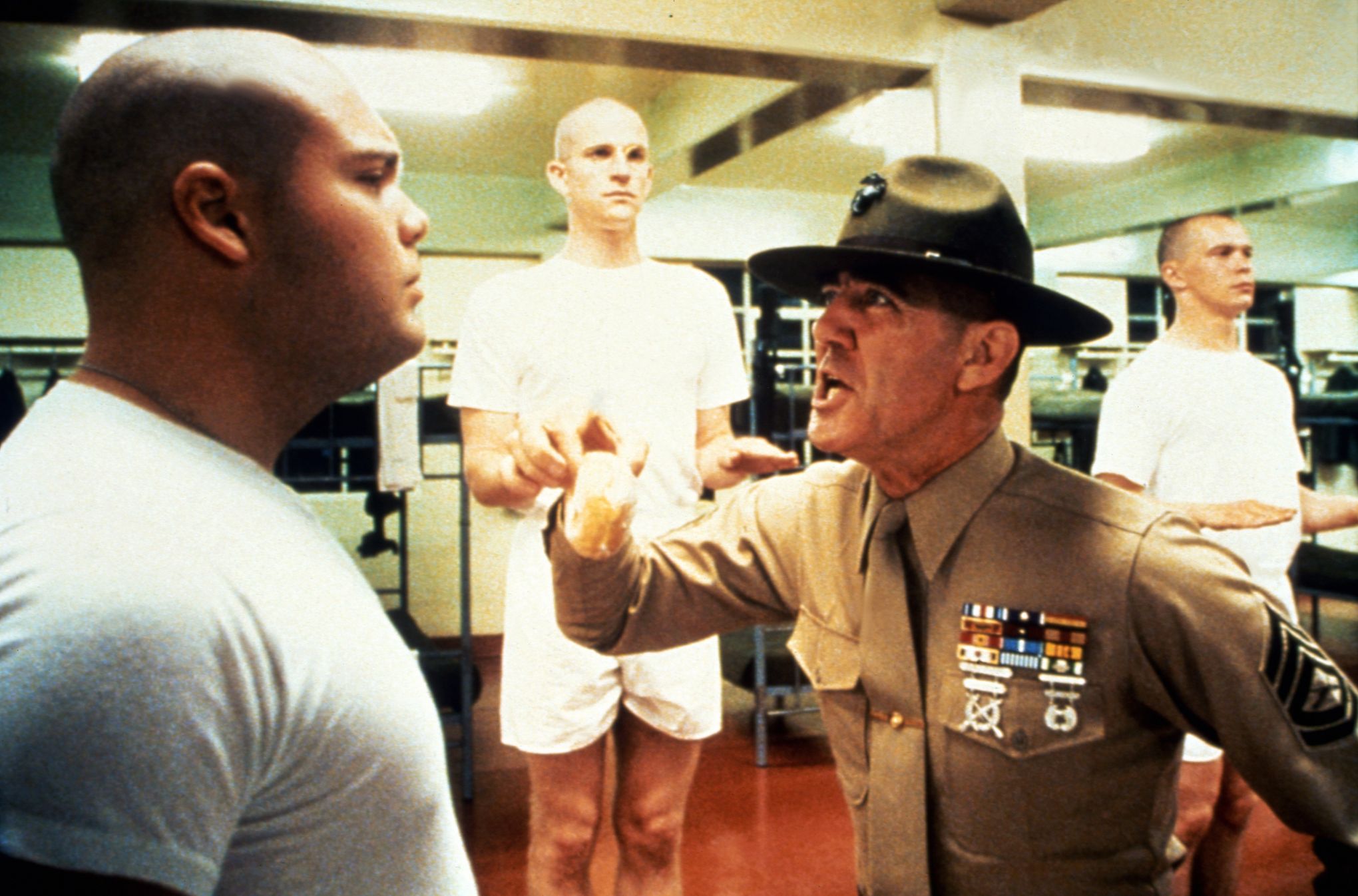
Todd McCarthy reviews Stanley Kubrick’s “Full Metal Jacket” for Variety magazine in 1987

The screenwriter of “Full Metal Jacket”, Michael Herr, pays homage to his longtime friend, director Stanley Kubrick
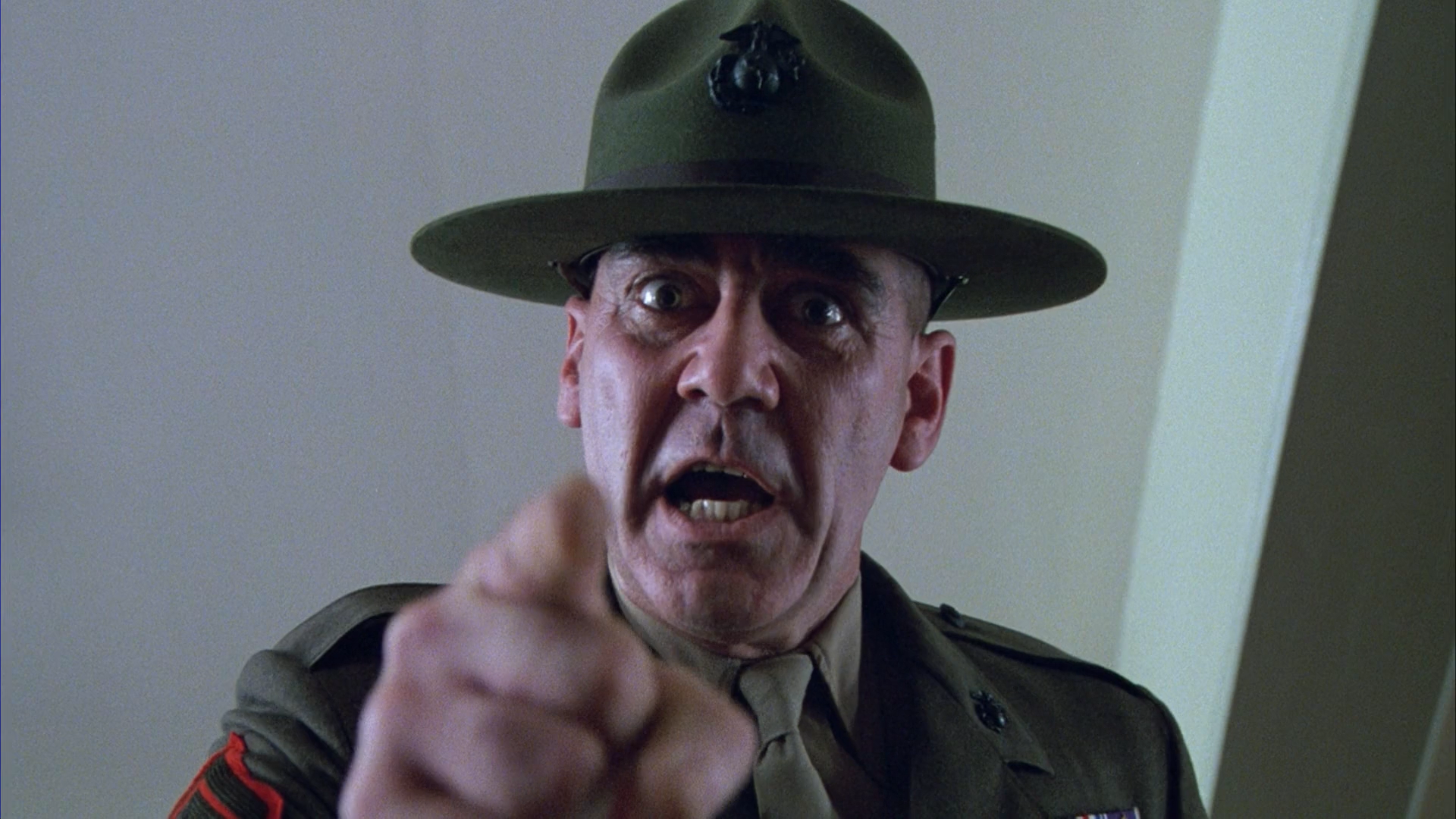
Speciale della rivista “Filmcritica” pubblicato nel 1987 in occasione dell’uscita del film di Stanley Kubrick “Full Metal Jacket”

Speciale sul film di Stanley Kubrick “Full Metal Jacket”, pubblicato dalla rivista Cineforum nel 1987.

One dark legacy of the nation that had still not been put to rest by this time was the Vietnam War, which is evident in Stanley Kubrick’s Full Metal Jacket and in the other notable combat film of the year, John Irvin’s Hamburger Hill.
Get the best articles once a week directly to your inbox!